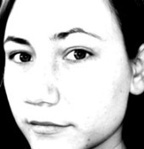After being expelled from the Garden of Eden, Adam and Eve had two sons. The elder was called Cain. He was the first man born outside of paradise.
In time Cain grew up and cultivated his land and brought the first fruits as an offering to God. The offering was rejected. Jehovah explained to Cain that he was tangled up with evil - it lurked around his door. "But," Jehovah said, "you may triumph over evil and have abundant life."
That's a crucial sentence - the last thing Jehovah says to Cain.
"You may triumph over evil and have abundant life."
The critical word is the second one, the verb - may.
Timshel in Hebrew.
This term has vexed scholars and theologians for a long time. It sits in the middle of a passage considered one of the five most difficult in the Scriptures to translate and understand. In context it has varied meanings, especially in this interchange between Jehovah and Cain.
Timshel has been interpreted to mean "you shall" - that's an order, a command. Timshel has been interpreted to mean "you will" - which implies predestination. Timshel has even been interpreted to mean "you cannot," which suggests hopeless dependence. All of these interpretations define a relationship with God that leaves little freedom.
My friend the rabbi feels that the practical meaning of that passage of Scripture concerns vitality - meaning "Don't be dead," or "Don't be a passive victim - be active - be alive." He reads it as good advice: There is this problem with evil - you really should deal with it.
Carry that one step further - if you should, then you may.
To interpret timshel to mean "you may" is to use a word that implies the possibility of choice. This is not a matter of theological hairsplitting. I think a strong case can be made that human beings have at least acted as if "you may" was the correct interpretation - acting as if our destiny is in our hands.
Whatever we may think or believe, what we have done is our story.
You don't need to be a theologian or belong to any particular religious group to enter this discussion, but you do come down somewhere on this issue of what's possible in your life by how you in fact go about your life. You live this truth, one way or another.
In modern English, timshel means "it may be," or, simply, "maybe."
Maybe. There's our word.
The wisest answer to ultimate questions.
A word pointing at open doors and wide horizons.
I do not believe that the meaning of life is a puzzle to be solved. Life is. I am. Anything might happen.
And I do believe I may invest my life with meaning.
The uncertainty is a blessing in disguise.
If I were absolutely certain about all things, I would spend my life in anxious misery, fearful of losing my way. But since everything and anything are always possible, the miraculous is always nearby and wonders shall never, ever cease.
I believe that human freedom may be stated in one term, which serves as a little brick propping open the door of existence: Maybe.














1 Comments:
so, something like "choice?"
;)
Post a Comment
<< Home